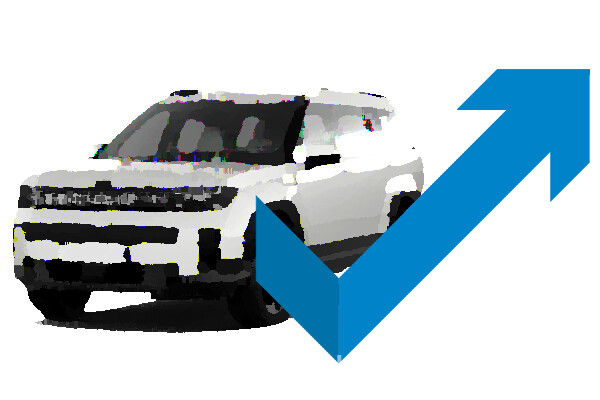
[Consumerwide - HueSoung Jun Reporter / Yohan Bok Reporter] It has not been easy for the vehicle industry during February in Korea. Due to short dates (only 29 days), shortened working days because of the Seol holiday, and a lack of EV national subsidies, the new vehicle sales record has rapidly decreased, especially for Korean vehicles. On the other hand, the sales record of hybrid vehicles has increased, ranking second in market share. Some argue that environmental consumers are turning to hybrid vehicles instead of EVs due to decreasing subsidies.
According to Carisyoudatalab, the ministry of land, transportation, and infrastructure, and the Korea Automobile Importers and Distributors Association, on February 7th, 112,496 units of new vehicles were registered. (passengers and commercial), which is a 22.0% decrease from last month and a 17.3% decrease from the same month last year.
95,913 new Korean vehicles were registered, which is a 26.7% decrease from last month and a 16% decrease from the same month last year. 16,583 new overseas vehicles were registered, which is a 22.7% increase from last month and a 24.3% decrease from the same month last year. 98,304 passenger vehicles (Korean and overseas brands) were sold, which is a 21.7% decrease from last month and a 14.1% decrease from the same month last year. 14,192 commercial vehicles were sold, which is a 24.5% decrease from last month and a 34.1% decrease from the same month last year. 82,161 units of domestic passenger vehicles were sold, which is a 27.0% decrease from last month and an 11.7% decrease from the same month last year. 13,752 units of domestic commercial vehicles were sold, which is a 24.6% decrease from last month and a 34.8% decrease from the same month last year. 16,143 overseas passenger's vehicles were sold, which is a 24.4% increase and a 24.7% decrease from the same month last year. 440 overseas commercial vehicles were sold, which is an 18.2% decrease and a 24.3% decrease from the same month last year. The rapid decrease in sales of both domestic and overseas brand vehicles compared to the same month last year seems to be due to short monthly days (29 days), fewer working days caused by public holidays (Seoul), and a lack of EV subsidies.
Nevertheless, in the fuel category, the sales record of hybrid vehicles has increased by 34.9% (27,828 units) from the same month last year. Hybrid vehicles ranked the second (24.7%) in fuel category sales, gasoline the first (52.2%), and diesel the third (10.2%).
In the age group category, people in their 50s were the major players for hybrid purchases. In the case of female customers, people in their mid-age were the biggest customers, and the sales record is as follows: in their 50s 1,200, in their 40s 889, in their 30s 723, in their 60s 631, in their 20s 235, and in their 70s 112. Male customers in their mid-ages were the main consumers as well. The sales records according to age group are as follows: in their 50s, 3,551; in their 60s, 2,540; in their 40s, 2,323; in their 30s, 2,243; in their 20s, 585; and in their 70s, 475. Corporations and businesses recorded 4,444, which is a 41.6% increase from the same month last year.
In the regional category, customers in the Gyeonggi area purchased 4609 units of hybrid vehicles, which was the most. The purchase records of other regions are Seoul 2,179, Gyeongnam 1,488, Jeonnam 1,440, Busan 1,276, and the rest of the regions less than 1,000. In the brand category, Hyundai, Kia (domestic brand), Lexus, and Toyota (overseas brand) led the market.
I perceive that the high trend of hybrids will continue for a while due to the increased options in hybrids. Most popular domestic models have hybrid options, and many began seeing Japanese brands as an option. Besides, Genesis is also planning to release hybrid models.
- [Consumption value-In-Depth-Report⑳] The consumption value of businesses is donation and sharing for society.
- [Consumption Value-In Depth Report㉑] Delivery apps, one of the daily necessities, are having fierce competition in the 2nd and 3rd ranks. Who is going to be the winner?
- [Consumption Value: In-Depth Report ㉒] The vehicle sector is setting the standard for corporate consumption value by fostering experts to establish social contribution initiatives.
- [Consumption Value-In Depth Report ㉓] "Let's reduce plastic waste." Current status of businesses in environmental management.
- [Consumption Value-In Depth Report ㉔] On World Water Day, industries are initiating water resource protection by cleaning rivers.
- [Consumption Value-In Depth Report ㉕] Turning off the lights for an hour has the effect of planting 1.13 million trees. Environmental value consumption.
- [Consumption Value: In-Depth Report ㉘] Cultivating forests and planting trees on Arbour Day.
- [Consumption Value: In-Depth Report ㉗] Single-family households are a prospective market for the home appliance and distribution industries in Korea.
- [Consumption Value: In-Depth Report ㉙] Free delivery competition began in full scale among app providers in Korea.

